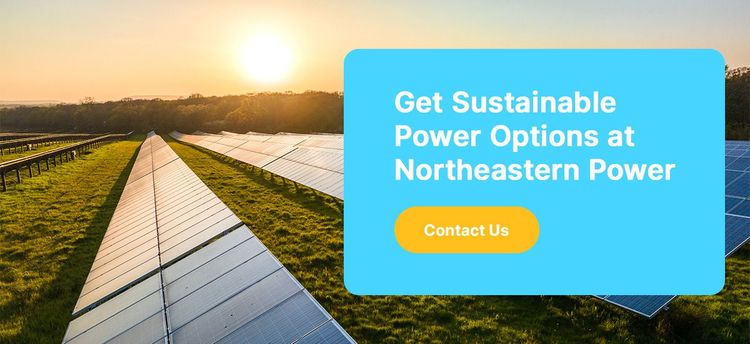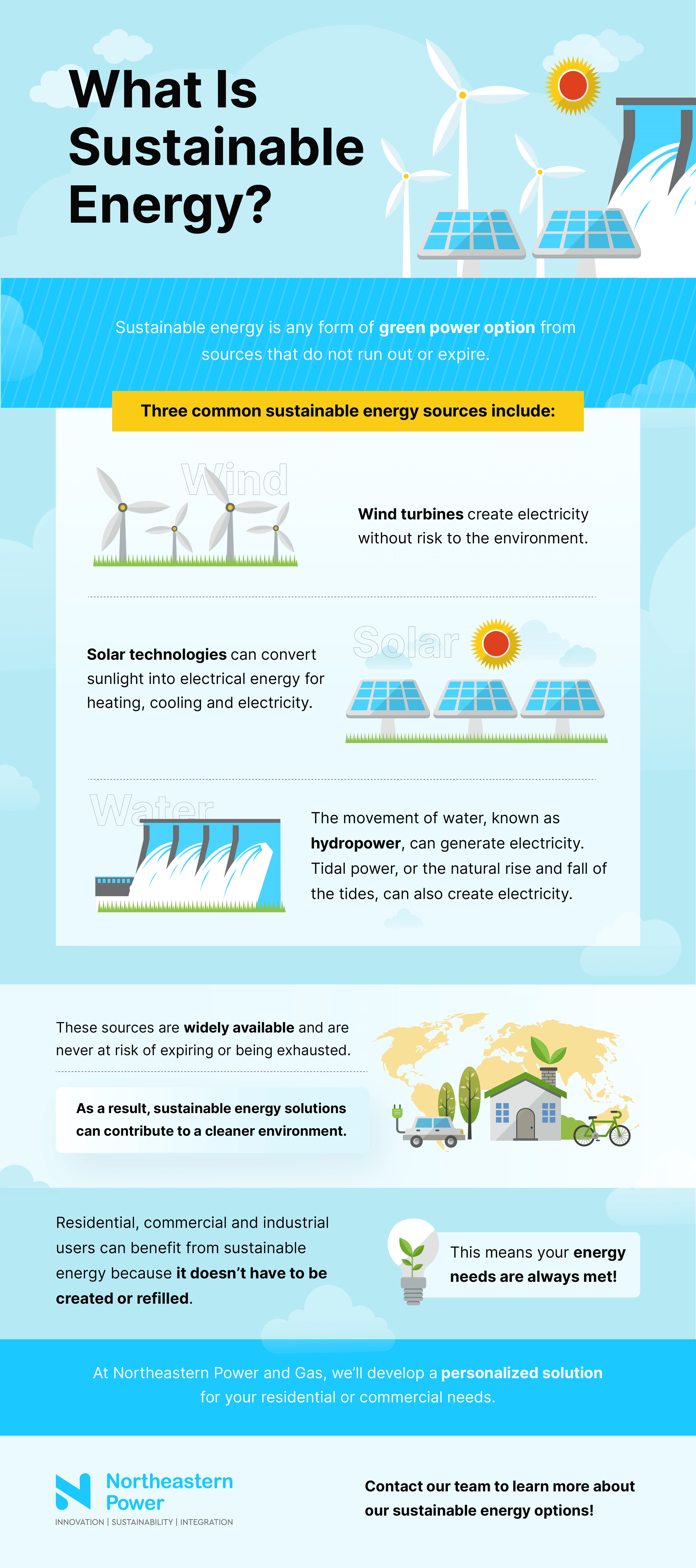17 Oct 2024

Sustainable energy is any type of eco-friendly energy source that is renewable. These renewable energy sources can meet present energy demands without compromising future generations' ability to meet their needs. Shifting to sustainable energy solutions is important in minimizing environmental degradation and global warming, which are the leading adverse effects of continual overdependence on fossil fuels.
If you're interested in exploring the need and importance of adopting sustainable power options at home or in your business, this guide has everything you need to get started.
The concept of energy sustainability refers to eco-friendly energy sources that can be used repeatedly and do not run out with proper oversight. If they are widely adopted and accepted, they could significantly reduce global warming and climate change's impact.
Since sustainable power generation involves creating energy from inexhaustible resources, all sustainable resources are renewable. However, some renewable energy sources, such as biomatter and crops, are sustainable as long as they are carefully managed.
You can distinguish sustainable energy through their outstanding characteristics, such as:
Sustainable energy solutions are set to become the go-to, ever-present power options for future generations. While they are already being increasingly adopted in many countries, their use is still far below that of non-renewable energies.
Currently, there are five main types of sustainable energy options.
Solar energy is among the largest available resources and a cheap way to provide electricity. Through solar technologies, photovoltaic panels convert sunlight into electrical energy that can be used residentially and commercially on a large scale. Low carbon emissions, low operation costs, optimal power production and increased battery production are major reasons solar energy adoption is on the rise, with a projected 18% penetration rate in U.S. homes by 2032.
From windmills grinding grain and pumping water to huge wind turbines harnessing large amounts of energy today, wind energy stands out as one of the most evolved and innovative sustainable energies. Generating wind energy follows a practical, eco-friendly concept that harnesses enough energy for sufficient commercial and residential use. Strong winds are needed to turn huge blades working as the turbine, which powers the generator within it to produce energy.
Wind energy has several sustainable energy benefits, including high power capacity, simple and quick maintenance and cost-effective power generation.
As one of the oldest types of sustainable power options, hydropower is a more established green energy initiative, powering a majority of households worldwide. In the USA, over 800 trillion units of hydroelectric power were consumed in 2023 alone, which is still very high considering other power options are also penetrating the market. The most common form of hydropower generation happens when water in large dams is released downstream to turn turbines and generators for power production.
In addition to being one of the oldest types of sustainable power options, hydroelectric power is also among the world's largest sources of sustainable energy. It is reliable, flexible, cost effective and supports other sources of power.
Biomass energy is mainly derived from a wide range of organic materials such as wood pellets, manure and food waste used for power and heat production. Liquid biofuels are mainly produced using agricultural crops and animal fats as a cleaner-burning option to replace petroleum-based diesel fuel. Most biomass energy is used in rural communities for lighting, space heating and cooking.
Geothermal energy is produced from the heat generated naturally within the earth and channeled out to the surface as steam. Geothermal power plants extract the heat from these geothermal reservoirs using wells and harness it to produce electricity. Since these reservoirs aren't available everywhere, geothermal energy production is limited to areas where they are present.
Sustainable energy benefits can be grouped into three main categories:
The implementation and adoption of sustainable energy face varying challenges in different regions, such as:
The positive impact of renewable energy has played a significant role in shaping the future of energy sustainability. More innovations and advancements in sustainable energy are expected, including cost-effective storage for renewable power and the wide implementation of microgrids.
Governments can invest in research and development, provide incentives and develop favorable, stable policies and regulations to aid the seamless adoption of sustainable energy solutions. They can also collaborate on a global level to enhance sustainable energy development.
Individuals and communities play a crucial role in developing a sustainable energy future, too. They can adopt available sustainable power options and employ efficient energy use to balance demand and supply for now, allowing room for growth and expansion of these energy solutions.
Whether for business or residential use, sustainable power options are the new way to get value for your energy money. These eco-friendly energies help create jobs, reduce pollution and achieve energy independence. Individuals and communities can remain vigilant, helping care for the sustainable energy infrastructure in their locale.
If you're interested in shifting to green energy initiatives, contact Northeastern Power to book the solution you want.
